Tag: MGH
-
Health
Super cool way to lose fat
The lab that invented cryolipolisis or “Coolsculpting,” a popular nonsurgical method for reducing fat under the skin, is developing a promising new form of the technology that can selectively reduce fat almost anywhere in the body using an injectable ice solution or “slurry.”
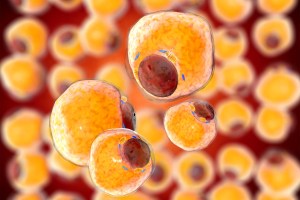
-
Health
Novel protocol improves pancreatic cancer outcomes
Adding the blood-pressure drug losartan to the intensive chemo and radiation protocol for treating locally advanced pancreatic cancer allowed complete removal of the tumor in 61 percent of trial participants and significantly improved survival rates.

-
Health
Mini-gut reaction
Researchers at Massachusetts General Hospital have created miniature, simplified versions of the intestine in vitro to explore how the gut lining and microbiome respond to gluten in both healthy and celiac patients.

-
Science & Tech
AI model predicts TB resistance
A Harvard undergrad, working with Harvard Medical School scientists, has designed an artificial intelligence model that predicts tuberculosis resistance to 10 most commonly used drugs. The new model outperforms previous machine-learning tools, and incorporating it into clinical tests could dramatically enhance early detection and prompt treatment of drug-resistant TB.
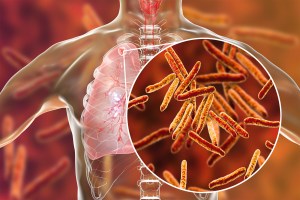
-
Health
Study identifies gene regions associated with sleep duration
Scientists from Massachusetts General Hospital and the University of Exeter Medical School have identified another 76 gene regions associated with sleep duration. Their findings may underpin future investigations into disordered sleep and understanding individual set points for how much is enough.

-
Health
Interaction between immune factors can trigger cancer
Harvard researchers found that interaction between immune factors triggers cancer-promoting chronic inflammation, setting the stage for the development of skin cancer associated with chronic dermatitis and colorectal cancer in patients with colitis.
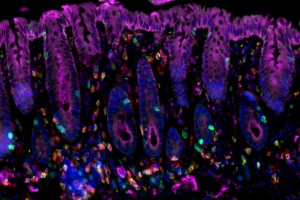
-
Health
Cannabis abstinence for month aids memory, study says
A Massachusetts General Hospital study found that abstaining from cannabis use for one month resulted in measurable improvement in memory functions important for learning among adolescents and young adults who were regular users.

-
Campus & Community
HUBweek returns with fresh ideas
Harvard University, The Boston Globe, Massachusetts General Hospital, and Massachusetts Institute of Technology are partnering again to present HUBweek, an idea festival. HUBweek brings together individuals and groups pushing the bounds of innovation in their industries.

-
Science & Tech
Paying the price of surviving childhood cancer
Study finds out-of-pocket health care costs can lead to financial problems for survivors of childhood cancer.

-
Health
Finding signs of life when it matters most
An MGH study has found that the use of fMRI and EEG may provide early detection of consciousness in patients with severe traumatic brain injury.
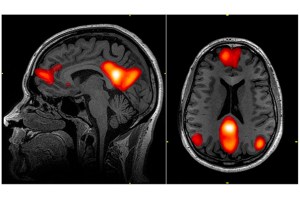
-
Health
Tackling childhood obesity with a text message
Two interventions that link clinical care with community resources helped improve key health measures in overweight or obese children at the outset of a study, as reported in JAMA Pediatrics.

-
Health
Giving Huntington’s disease the one-two punch
The identification of a molecular compound that combats Huntington’s disease by means of two separate mechanisms may be the watershed moment in the battle against neurodegenerative diseases.
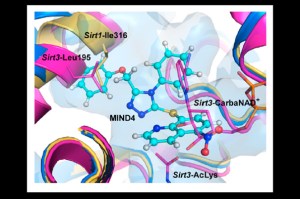
-
Health
Year born may determine obesity risk
Framingham Heart Study, PNAS Early Edition, Harvard Medical School Investigators working to unravel the impact of genetics versus environment on traits such as obesity may also need to consider a new factor: when individuals were born.

-
Health
Nerve damage and fibromyalgia
About half of a small group of patients with fibromyalgia — a common syndrome that causes chronic pain and other symptoms — were found to have damage to nerve fibers in their skin and other evidence of a disease called small-fiber polyneuropathy.
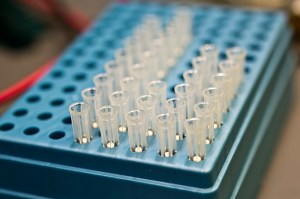
-
Health
Big advance against cystic fibrosis
Harvard stem cell researchers at Massachusetts General Hospital have taken a critical step toward discovering in the relatively near future a drug to control cystic fibrosis, a fatal lung disease that claims about 500 lives each year, with 1,000 new cases diagnosed annually.
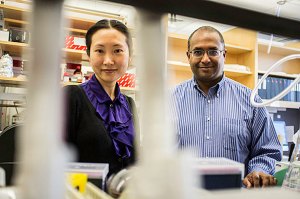
-
Health
Experimental drug improves Cushing’s disease
A new investigational drug significantly reduced urinary cortisol levels and improved symptoms of Cushing’s disease in the largest clinical study of this endocrine disorder ever conducted.

-
Health
Cells that kill HIV-infected cells
Harvard researchers find that a subpopulation of the immune cells targeted by HIV may play an important role in controlling viral loads after initial infection, potentially helping to determine how quickly infection will progress.
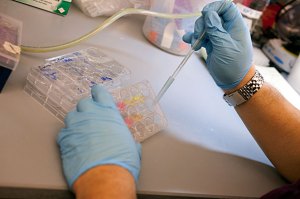
-
Health
Brain changes found in normal elders
Harvard-affiliated researchers using two brain-imaging technologies have found that apparently normal older individuals with brain deposits of amyloid beta — the primary constituent of the plaques found in the brains of Alzheimer’s disease patients — also had changes in brain structure similar to those seen in Alzheimer’s patients.
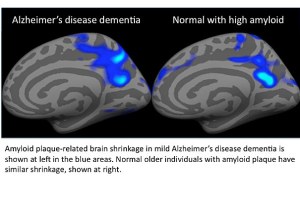
-
Health
Adult kidney stem cells found in fish
It has long been a given that adult humans — and mammals in general — lack the capacity to grow new nephrons, the kidney’s delicate blood filtering tubules, which has meant that dialysis, and ultimately kidney transplantation, is the only option for the more than 450,000 Americans who have kidney failure.

-
Health
Mixed messages
A comparative analysis found wide disparities in the results of four common measures of hospital-wide mortality rates, with competing methods yielding both higher- and lower-than-expected rates for the same Massachusetts hospitals during the same year.
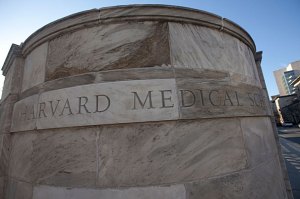
-
Health
Targeting lung cancer
An initial study of a new treatment for a form of lung cancer seems so promising it has been jumped from Phase 1 to Phase 3 clinical trials.
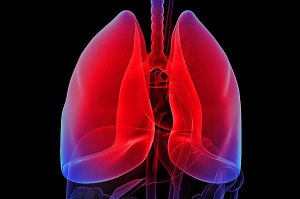
-
Science & Tech
Social pressure keeps African AIDS patients in treatment
One of the surprises of the global AIDS epidemic has been the high level of adherence to antiretroviral drug treatment in sub-Saharan Africa.

-
Campus & Community
I. (Israel) David Todres
(Israel) David Todres, Professor of Paediatrics (Anaesthesia) at Harvard Medical School, died at his home of lymphoma on Sept. 26, 2008. He was 73.
-
Campus & Community
Blumenthal is national coordinator for health information technology
The U.S. Department of Health and Human Services (HHS) announced March 20 the selection of David Blumenthal as the Obama administration’s choice for national coordinator for health information technology.
-
Health
Study IDs human genes required for hepatitis C viral replicating
Massachusetts General Hospital (MGH) researchers are investigating a new way to block reproduction of the hepatitis C virus (HCV) — targeting not the virus itself but the human genes the virus exploits in its life cycle. In the March 19 Cell Host & Microbe, they report finding nearly 100 genes that support the replication of…
-
Health
$100 million gift to launch innovative search for AIDS vaccine
Medical School Professor Bruce Walker has been selected as the founding director of a unique new $100 million effort to finally develop a vaccine that can halt the global HIV/AIDS pandemic that, if it continues unchecked, is predicted to claim an additional 70 million lives by 2020.
-
Campus & Community
Newsmakers
Rockefeller Fellows chosen; Hedley-Whyte wins AAMI award; Goldman invited to speak to Homeland Security Council; Steinkeller receives Humboldt award; Counter at Nobel Prize ceremony





